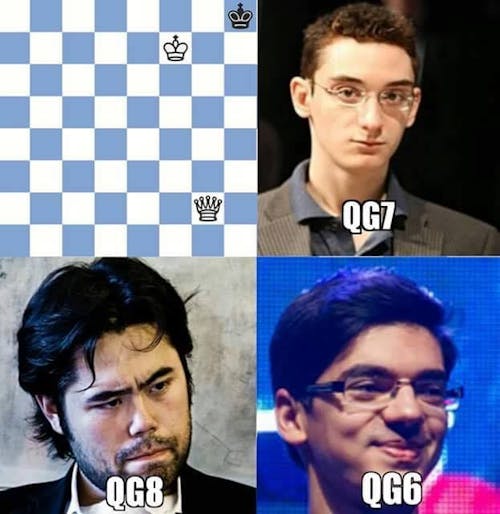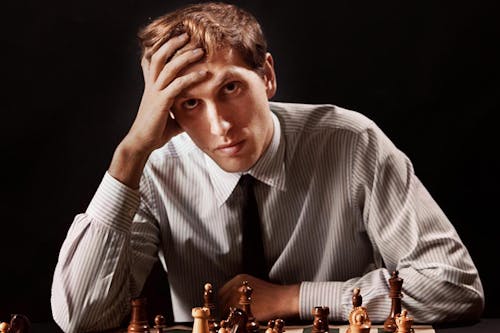Are you sure you want to delete your account?
(This will permanently delete all of your data - purchases, game scores, ratings, etc)
Change your username
Your current username is: guest
Change your account email address
Your current account email is:
Redeem your Fampay code here!
Use your Fampay code to get access to the Play Magnus Plus Membership!
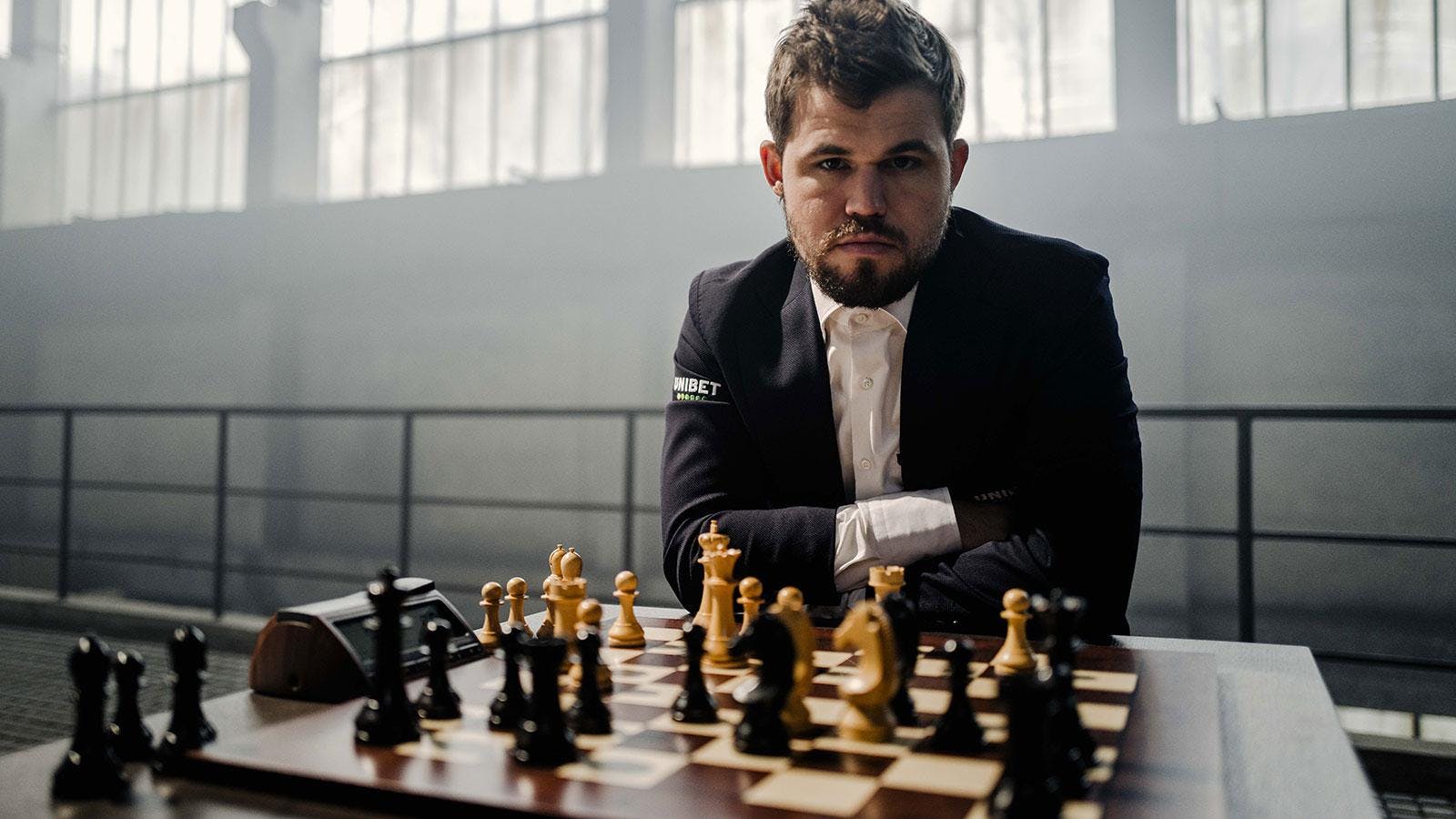
How Should You Sit at the Chessboard?
Since chess players typically spend a lot of time at the chessboard playing tournaments, let me share some tips on how to do it more efficiently:
1. Take care of the lighting. Sometimes it is not sufficient. In such cases, it makes sense to consult the arbiter in advance and to fix the problem somehow.
Mikhail Botvinnik was known for having a stern character and standing up for his rights. When he played in Wijk aan Zee in 1969, he already had poor eyesight and requested an additional lamp stationed on his table. As a result, the 57-year old former World Champion shared first place there with Efim Geller.
2. Grab a nice chair. For the World Chess Championship match against Boris Spassky in 1972, Bobby Fischer famously flew to Iceland a chair that he used earlier during his match in Buenos Aires against Tigran Petrosian. Generally speaking, the players meticulously check the chairs before important matches, ensuring they are comfortable enough. I am not suggesting you carry a chair with you wherever you go. Also, unless you are a top player, the organizers are unlikely to do you special favors. Still, if, for instance, you, as a big guy, find yourself seated on a tiny chair suited for kids, you may as well call the arbiter and see if this can be fixed. Don’t suffer unless there is no alternative!
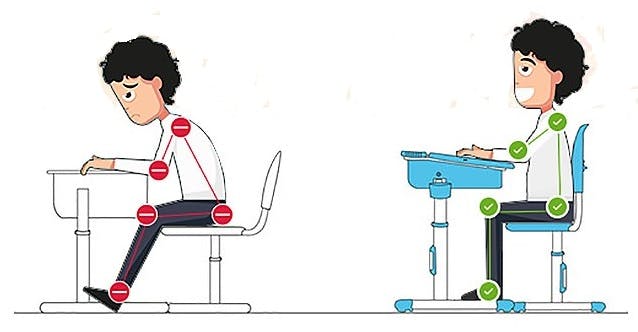
3. Keep an upright, confident, yet relaxed posture. It is good for your back, neck, and general well-being. If you are accustomed to “half-asleep” or “hook back” postures, fix it by developing your back muscles via appropriate physical training, massage, and improving your bedroom. Sometimes finding the right pillow or mattress can work magic for your body.
On the header image of the post, Magnus Carlsen demonstrates an example of how you should sit at the chessboard.
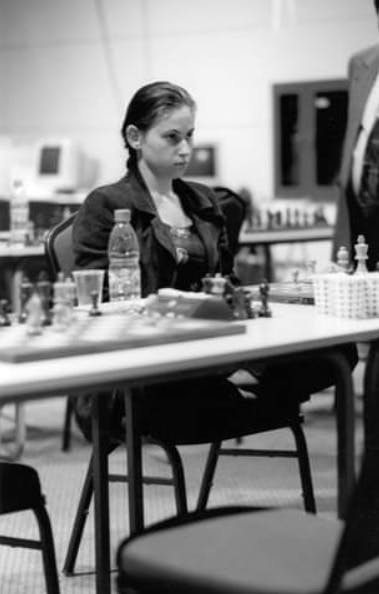
You may want to experiment. On the image, you can see Judit Polgar at the Chess Olympiad in 1988. According to her, putting legs like that helped her concentration. You can challenge Judit Polgar at that age (12) in the Play Magnus app!
4. Breathe deeply and try to find a way to gain access to fresh air whenever possible and needed.
Even though you need a medical permit to play chess events in some countries, the regulation is often neglected. After all, most people don’t treat chess as “a real sport” and don’t perceive it as bearing any risks for your health. An old (and rather silly) joke goes that chess is a dangerous game since you can fall asleep during a match and land with your eye on one of the bishops! In reality, players experience severe increases in the heart rate and blood pressure during intense matches, especially in time trouble. Some Grandmasters have died over the board or shortly after the round – Vladimir Bagirov, Vladimir Simagin, Vitaly Tseshkovsky, to name a few.
I recall playing the Chigorin Memorial in St. Petersburg. One of the players stood up from the board to take a routine walk around, made a few steps…and collapsed on the floor, losing conscience! The doctors had a hard time convincing him to take care of his health; the gray-haired veteran was eager to return to the board and play on at all costs! This is just a friendly reminder that regardless of how much you love chess and care about the result of the game, prizes, and rating points, your well-being is of more importance.
5. Don’t get frozen over the board unless you are in extreme time trouble. Relax a bit by taking a walk while your opponent is thinking. This is good both for your nervous system and your body.
This tip is easy to get across nowadays since this is what pretty much all the top players are doing. However, in the past, there were examples of a different kind. For instance, Bobby Fischer was famous for enduring the tension for hours, sitting over the board as if he was glued to it. However, this is detrimental to your health, and most players don’t have the physical and mental stamina to keep concentrating for so long. Even though on the surface it may look appealing to spend every minute of your time wisely, not getting up from the board at all, this is a poor idea.
6. Do some basic stretching exercises when away from the board. There are books that offer quite sophisticated lists tailored specifically at chess players, e.g., “64 Recipes of Success” (in Russian) by Simkin, Bodnarchuk, and Shtatnov. However, there is no need to memorize special techniques. Common sense is good enough. Don’t be shy; just find an uncrowded spot in the playing hall and get started!
I was a bit surprised when the commentators began mocking Vidit for his “dance moves” while he was following the basic guidelines. He got up from his chair on his opponent’s turn and made some simple moves that are good for your body!
7. Make sure to bring a drink and some snacks with you. In this blog post, we won’t be discussing the important subject of optimal nutrition for chess players. Moreover, it is not possible to give universal advice. For instance, some of us have low blood pressure and could benefit from increasing it during the round. Others, in contrast, have high blood pressure and need to run like the plague from anything that can pump it up even higher. Since our focus is behavior over the board, it is worth noting that you can drink freely during the round (unless it is a prohibited beverage, such as alcohol or some sort of forbidden doping). With food, the situation is more complicated. Common sense and experience tell us that you can’t probably open a lunch box and start munching it in front of your opponent. That being said, at some tournaments, especially local ones, the arbiters will close their eyes on you doing something relatively innocent, such as eating a banana or some chocolate. However, according to official FIDE rules, you are not allowed to eat over the board since it could be potentially distracting for your opponent. What I have been advised to do in such cases was, for instance, to take the banana from your plastic bag and leave the board, walk freely around the playing hall, and enjoy your snack.
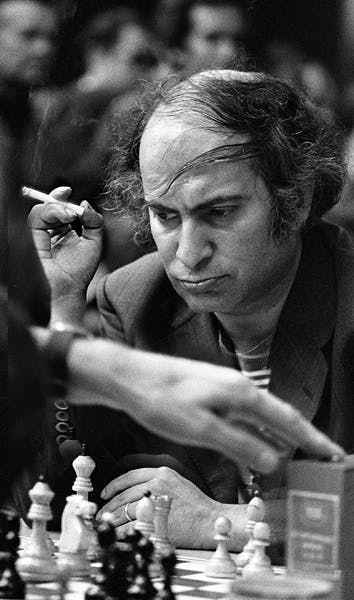
8. Quit smoking. The pseudo-romantic times when Mikhail Tal could smoke a few packs of cigarettes during a long game, shortening both his and his opponent’s expected lifespans, are long gone. If you consider the modern chess elite, Alexander Grischuk seems to be the only top GM left who has to bother wasting time leaving the playing hall for a smoke break. Smoking is hazardous for your health and a distraction during the game, making you essentially offer a time handicap to your partner.
When you are not playing tournaments, how about taking advantage of a training program designed by Magnus Carlsen and his team of world-class experts? Check it out now!
